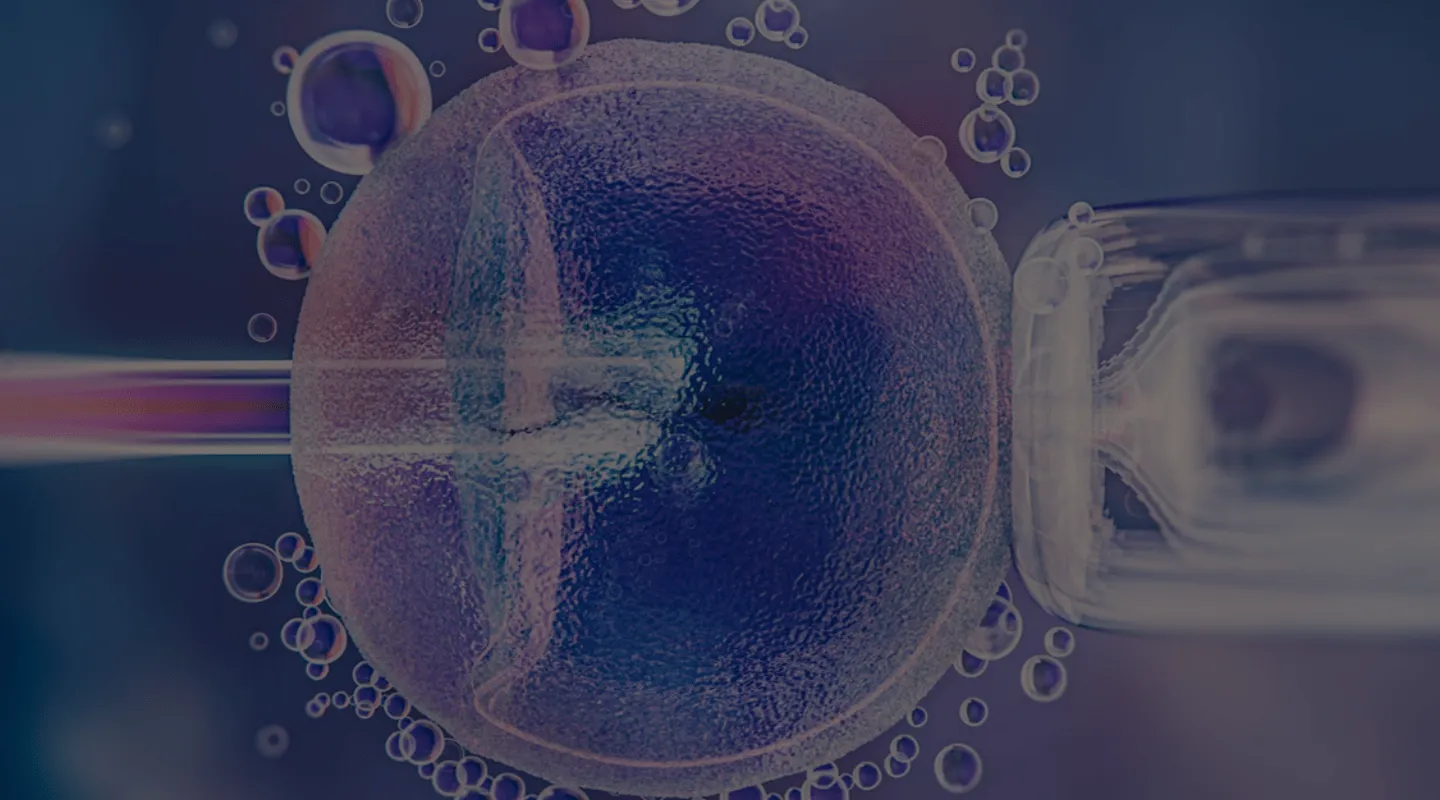
ICSI: Intracytoplasmic Sperm Injection
Your ICSI in Tunisia at an affordable price
Opt for a medical stay with Tunisia Destination Santé and benefit from the expertise of our specialist doctors and the best healthcare facilities in Tunisia. Thanks to our tailor-made service, you will benefit from complete support in a secure and comfortable environment.
How does it work?
What is ICSI?
Despite many years of marriage, some couples have difficulty conceiving a child. Fortunately, today, there are several assisted reproductive methods, such as ICSI. If you have had difficulty starting a family, ICSI treatment may be considered based on your medical history. Discover this technique, known to be one of the most effective in assisted conception. Tunisia Destination Santé before, during and after your ICSI stay in Tunisia.
ICSI, also called Intracytoplasmic Sperm Injection, is a cutting-edge technique used in in-vitro fertilization (IVF). Although the cycle process is similar to that of IVF, the method of fertilization in the laboratory is different.
What are the advantages of ICSI compared to classic IVF in the in-vitro fertilization process?
After ovarian stimulation, oocyte puncture and sperm collection, the oocytes are then placed in a culture medium to be fertilized. Unlike classic in-vitro fertilization (IVF) where sperm are simply released into the culture medium alongside the oocytes and selected naturally, in the case of ICSI, a carefully chosen sperm is directly introduced into the oocyte. Thanks to prior sperm selection and forced fertilization by their penetration into the oocyte, the chances of success increase during an IVF cycle with ICSI. Several studies have shown that ICSI offers higher success rates than traditional IVF. In addition, embryo transfer usually takes place 2 to 5 days after oocyte retrieval.
Affordable ICSI price in Tunisia
Depending on the diagnosis PMA and the case, ICSI is offered from 1500 Eur. To receive a personalized quote with an affordable ICSI price, please contact us. In addition, Tunisia Destination Santé offers you a full range of services such as logistics, accommodation and transfers. Do not hesitate to contact us for a quote.
Your health, our priority.
Request your free quote.
Intracytoplasmic sperm injection in Tunisia: what you need to know before you start
In-vitro fertilization with intracytoplasmic sperm injection (ICSI) is commonly used in Tunisia. Very popular, it offers an affordable opportunity for couples wishing to start a family. Before committing to ICSI treatment in Tunisia, conduct thorough research on fertility clinics. Ensure the clinic has a competent and qualified team, as well as the latest technologies and methods to ensure the best results.
Remember to discuss with your doctor all available treatment options, so as to understand the risks and benefits associated with ICSI. In order for you to make an informed decision, it is essential to discuss your health status, medical history, and individual needs with your doctor. Once you have decided in favor of ICSI, Tunisia Destination Santé can assist you in organizing your stay for this procedure in Tunisia.
How does ICSI proceed in Tunisia?
A stay of approximately three weeks in Tunisia should be planned. Despite this, by starting ovarian stimulation in one’s country of origin, the stay can be reduced by one week. However, oocyte puncture, transfer and fertilization will be carried out at the largest IVF center in Africa. Most couples opt for a stay in a furnished studio next to the IVF center or the specialist’s office for reasons of convenience and budget.
What are the postoperative consequences of ICSI in Tunisia?
During the ICSI cycle, several visits to the PMA specialist and the treatment center should be expected. Fortunately, the postoperative consequences of this technique require virtually no recovery period. Indeed, all steps are performed on an outpatient basis without incision.
What are the results of intracytoplasmic sperm injection in Tunisia?
ICSI (intracytoplasmic sperm injection) is an assisted reproductive method. This technique aims to increase the chances of fertilization by directly injecting a sperm into the egg. Note that the results of ICSI depend on various factors such as:
- the woman’s age,
- the quality of the sperm,
- the number of fertilized eggs, etc.
Our advantages


IAC, IVF, ICSI: which one to choose?
When making a decision on assisted reproduction, such as choosing between IAC, IVF or ICSI, it is essential to properly assess the advantages and disadvantages of each option. Although ICSI has higher success rates than classic IVF, it is crucial to discuss all possibilities with a PMA specialist. Once ICSI is selected, the woman will have to follow a series of specific steps so that the chances of success are increased.
Contact and quote request for IVF
If you would like assistance in organizing your medical stay, Tunisia Destination Santé is here for you. Do not hesitate to contact us for more information.
—
Frequently Asked Questions
The success of ICSI depends on several factors, including the quality of the sperm and eggs, the experience of the fertility laboratory, the woman’s age, and the underlying cause of infertility.
Studies show a slight increase in birth defects in children conceived by ICSI, although these risks remain relatively low and are often related to parental infertility itself.
Embryologists use strict criteria to select sperm, favoring those with the best morphology and motility, sometimes using advanced techniques such as selection by high-resolution microscopy.
The main difference is the fertilization method: in ICSI, a single sperm is injected directly into the egg, while in classic IVF, the eggs and sperm are placed together to allow natural fertilization.
IMSI (Intracytoplasmic Morphologically Selected Sperm Injection) uses more detailed microscopy to select sperm. It is often chosen when morphological abnormalities of the sperm are suspected or after ICSI failures.
Yes, ICSI can be used with donor eggs or sperm, particularly when the quality of the gametes requires assistance to maximize the chances of fertilization.
Stress, anxiety and sometimes depression are common psychological effects in couples undergoing ICSI, which is why they often require professional psychological support during and after treatment.
For men with non-obstructive azoospermia, ICSI can be a viable option if sperm can be retrieved by testicular biopsy. However, the success rate depends on the quantity and quality of the sperm retrieved.
ICSI can speed up the treatment process by reducing the time needed to achieve successful fertilization, but each case is unique and the schedule may vary depending on ovarian stimulation cycles and embryo transfers.
Recent advances include the use of artificial intelligence to improve the selection of sperm and embryos, as well as the integration of new cryopreservation techniques to preserve the quality of gametes and embryos.
